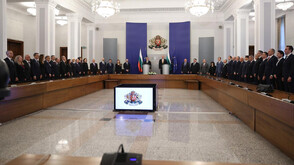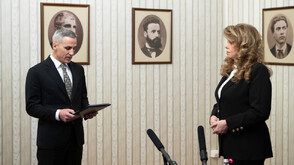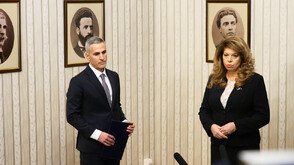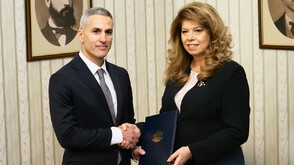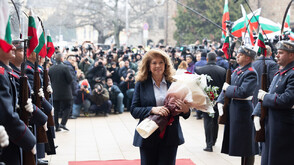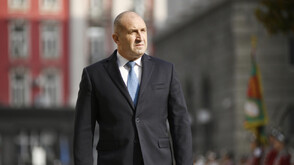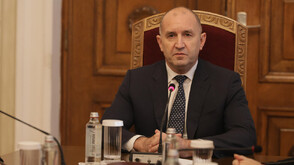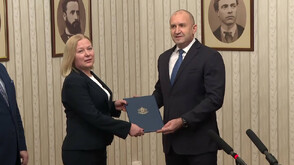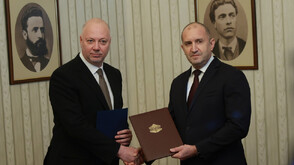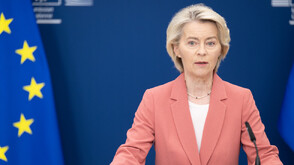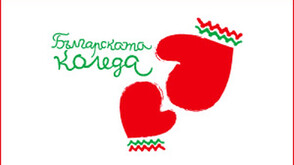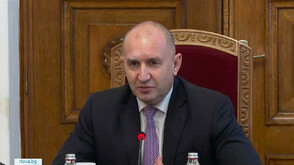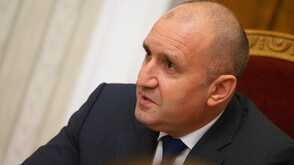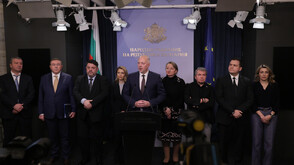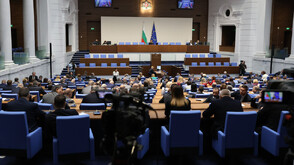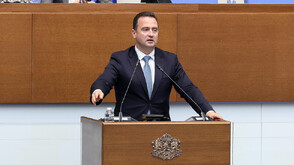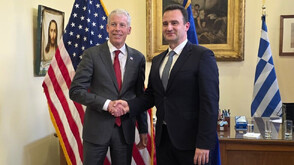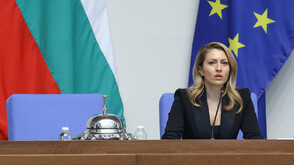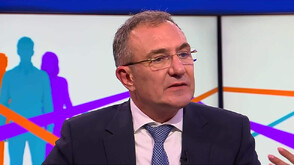
Photo: Archive
Ninova said in her political report that BSP has reinstated the State's role in social relations
"The Bulgarian Socialist Party (BSP) will not be forming a coalition with GERB," BSP leader Korneliya Ninova told a session of her party's 50th Congress here on Saturday, urging for an end to such speculation.
"Let the elections pass and let us see which parties will win people's trust, and then we can decide with whom we can share power in a government," she said, adding that such a decision should be made after consulting BSP's members.
Ninova said in her political report that BSP has reinstated the State's role in social relations, has helped a recovery of State-owned enterprises, and has managed to show that the State can be a good manager. "We disproved the neoliberal model of a State withdrawal from key sectors," she said.
The leader called for a sensible discussion about where BSP is headed as a party. Ninova said that she sees Bulgaria's present and future in the European Union.
She recalled that BSP's National Council has condemned the aggression in Ukraine, which she described as "a destructive war for the whole world".
She said that BSP will firmly and clearly insist on Bulgaria's neutrality and not to allow weapons supplies, on a cessation of hostilities and negotiating peace. Commenting on allegations that BSP connived in the export of weapons from Bulgaria to Ukraine, Ninova said that while they were part of the Kiril Petkov Cabinet, the Socialists were the ones who stopped such exports.
The energy sector was most seriously impacted by the war. The energy crisis had the worst impact on prices, inflation and the continuing impoverishment and growing inequalities, she pointed out.
The Socialists' leader focused on two current topics: the closure of coal-powered plants and the future of nuclear power. She argued that Bulgaria has met its commitments for CO2 emission cuts and its coal-powered plants should not be closed down. She also recalled that her party has long been in favour of nuclear power. "Nuclear power should develop by building new facilities and upgrading the Kozloduy N-plant's units. Nuclear sanctions against Russia will doom Bulgarian nuclear power, the economy and Bulgarian households," she said.
The Congress resolved to assign to the party's National Council to start arrangements for a national referendum on whether "gender ideology" should be allowed in school or kept out of it. The motion came from delegates from Pleven (North Central Bulgaria), who voiced concern over what they described as "ever more frequent attempts at penetration of that ideology in school". The idea is "to safeguard Christian and family values for the sake of our children".
The delegates adopted guidelines for a new party programme and a concept for changes in the Statute and launched preparations for the local elections this coming autumn.
"Our purpose is to share in Bulgaria's governance, but not as an end in itself and in search for government posts and money. The idea is to serve the people by our policy," Ninova summed up at the end of the Congress session.
Earlier, delegates of BSP's Congress urge their party's leader Korneliya Ninova to step down while she was reading her political report.
They chanted "Resign!" outside the hall before entering to attend the Congress.
Representatives of the so-called internal opposition in the BSP took a family photo in front of the hall.
Former prime minister, ex-BSP leader and formed president of the Party of European Socialists Sergei Stanishev told journalists that the party's leadership refuses to take responsibility. "All of us, who have gathered here in front of the congress hall, are doing so because we are worried and concerned about BSP's and the Left's future," he said.
MEP Petar Vitanov demanded earlier that the first item on the Congress' agenda should be terminating Ninova's credentials as BSP leader. His motion, however, was not put to the vote by Georgi Svilenski, who presided over the session, claiming that it is against the party's Statute.
Petar Mutafchiev said before the opening of the session that around nine delegates had been removed from the Congress by BSP's National Council and demanded that their right to attend be reinstated. Kiril Dobrev was among the ones not allowed to attend the Congress.
A motion for an early termination of Ninova's credentials as BSP chair was defeated by a vote of 537 to 221.
The Congress voted, 490-82 with 28 abstentions, to expel 13 delegates from the party for violating the party's Statute. The violations stated in the motion include a failure to work for the implementation of the decisions of the party bodies and to uphold the party's organizational and political unity and conduct impairing the party's reputation.
By another vote, of 498 in favour, 15 against and 24 abstentions, the Congress confirmed the expulsion of Kiril Dobrev from BSP and his removal from the National Council.
Later in the day, Svetlana Sharenkova (one of the 13 expelees) said in a press release that 272 Congress delegates had signed a draft resolution on Ninova's ouster as party leader on account of a series of disastrous election defeats, an unprecedented organizational and ideological crisis to which she brought the BSP, defacing the collective bodies, trampling on intra-party democracy and entering into devastating coalitions with right-wing parties. The signers of the draft included mayors, former and incumbent MPs, ministers and MEPs, including Sergei Stanishev.
Another expelee, Petko Dimitrov, commented that "obscurantism took control over BSP". He described the resolution on the expulsion of 13 Socialists "because of their political position dissenting from the party's ruling top crust" as "unprecedented and a far cry from the powers under the Statute of those who made the decision."
Редактор: Тони ГосподиновПоследвайте ни


